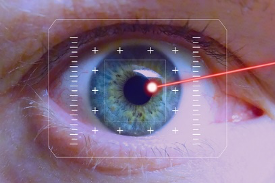The sight is one of the most important sensory functions, more than 30% of the human brain is in fact involved in processing visual information. The loss of sightof all possible disabilities, is among the strongest fears of the general population.
 Ophthalmology is, moreover, one of the branches of medicine that have achieved great breakthroughs in the treatment of patients and in the restoration and maintenance of physiological functions, even though there are areas in which pathophysiological knowledge and the identification of the resulting treatment options are still insufficient.
Ophthalmology is, moreover, one of the branches of medicine that have achieved great breakthroughs in the treatment of patients and in the restoration and maintenance of physiological functions, even though there are areas in which pathophysiological knowledge and the identification of the resulting treatment options are still insufficient.
L' European Vision Institutean organisation at the forefront of ophthalmic research in Europe, identified 'unmet needs' in ophthalmology that can realistically be met, with research and scientific progress, in the period 2019-2025. These unmet needs should serve as a guide for policy makers, the pharmaceutical industry and academia to minimise preventable blindness. The study, published in Ophthalmic Researchdefined unmet needs in the main ophthalmological areas: glaucoma, retinal dystrophies, diabetic retinopathy (DR), dry eye, corneal diseases and cataracts treatable by refractive surgeryand discussed realistically feasible research projects in these areas.
Below are some of the unmet needs identified for the area glaucoma: intraocular pressure non-dependent treatments (particularly neuroprotection); surrogate endpoints that can represent the progression of glaucoma and can be used as substitutes for visual field testing in order to reduce the duration of clinical trials and make them more convenient; new endpoints in clinical trials that can represent the early stages of the disease without the need to wait for damage to visual function or structural pathways; early diagnosis with high specificity and sensitivity; devices for the continuous measurement of intraocular pressure (IOP) that give the clinician a better idea of the range of IOP experienced by the optic nerve and a more complete view of a subject's response to a specific treatment; minimally invasive surgery with long-term efficacy.
The authors are confident that considerable progress will be made in the ophthalmic field in the near future that will result in significant improvements in the patient's quality of life.
Source
Dr. Carmelo Chines
Direttore responsabile
